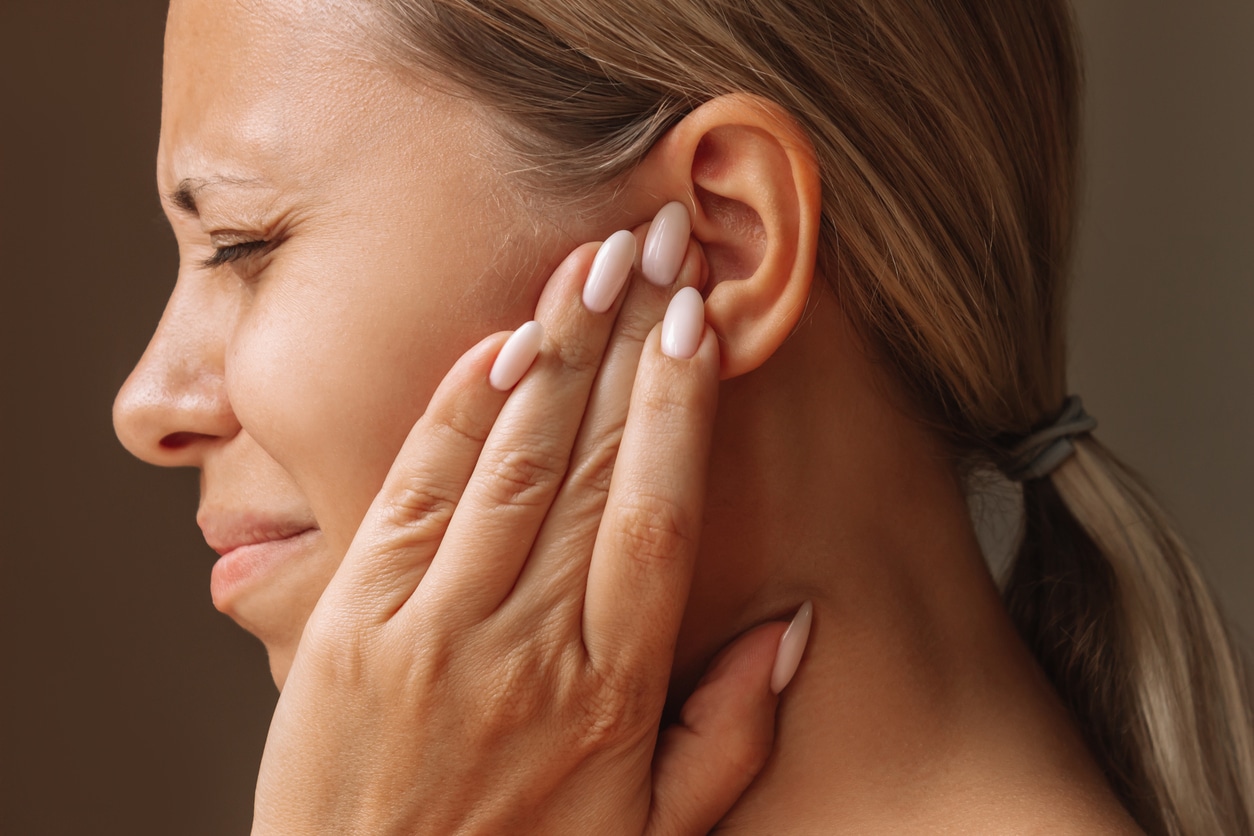The term tinnitus describes a phantom ringing, roaring, hissing, whistling, humming, buzzing or other sound in the ear with no external sound source. According to a 2018 study published in the journal Ear and Hearing, “Tinnitus is a common ontological condition that affects almost 10% of US adults.” In this post, we review some of the causes and risk factors for tinnitus.
Noise Exposure

In many cases, tinnitus is caused by exposure to excessive noise. There are many places in the ear that can be damaged by loud noise, from the stereocilia lining the cochlea that convert sound vibrations into electrical energy to the auditory nerve that sends these electrical signals to the brain to be interpreted as sound. One theory about how this type of exposure causes tinnitus is that loud noise damages the stereocilia, causing them to misfire. Another theory is that when the auditory nerve is damaged, it can lead to disrupted hearing and sound processing, including tinnitus.
Certain Medications
The medications you take can also contribute to tinnitus. The most common medications that cause tinnitus include non-steroidal anti-inflammatory drugs (such as aspirin and other over-the-counter pain relievers), diuretics, certain antibiotics, cancer drugs and malaria drugs. This is not a comprehensive list; there are more than 200 medications known to be ototoxic.
Heart & Blood Vessel Problems
Pulsatile tinnitus, which is tinnitus that is in time with your heartbeat, may indicate an underlying heart or blood vessel problem. These types of problems that can contribute to tinnitus include high blood pressure, turbulent blood flow, heart disease and malformation of the small arteries.
Inner Ear Disorders
Ménière’s disease is characterized by episodes of hearing loss, dizziness and tinnitus. Otosclerosis is a form of hearing loss caused by abnormal bone growth in the middle ear that can also cause tinnitus.
Head Injuries
Head injuries like a concussion or whiplash can also lead to tinnitus. This is because the delicate structures within the inner ear can be damaged during these types of injuries.
For more information about the causes and risk factors for tinnitus or to schedule an appointment with a tinnitus expert, call Valley Audiology today.